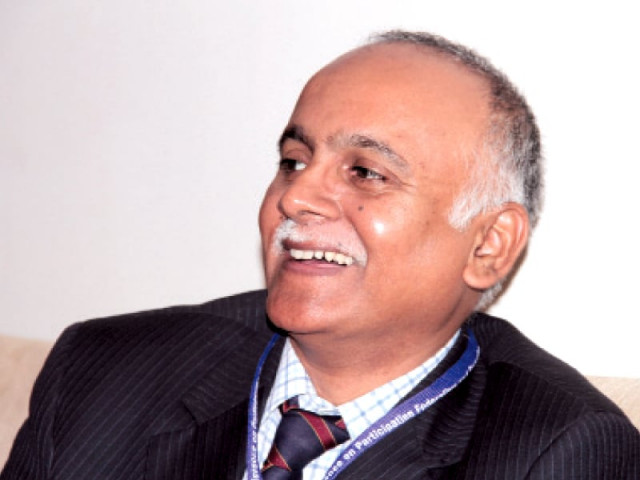Devolution of power: Pakistan needs to learn from India’s experiences
The ex-Indian official was speaking at the sidelines of UNDP’s international conference.

Former joint secretary of India, TR Raghunandan.
Pakistan, being in a transitional phase towards decentralisation, needs to learn from the experiences of India to tackle the challenges that are going to emerge in the process.
This was stated by a former joint secretary of the Indian government, TR Raghunandan during the presentation of his paper on “Panchayat Raj System in India” at a three-day International Seminar on “Federalism and Decentralisation: Framework to Functionality” organised by United Nations Development Programme (UNDP).
Talking to The Express Tribune later, Raghunandan defended his argument by giving examples of local governance challenges faced by India.

“India is alien to the concept of federalism. For smaller entities, being a union of states was never an issue and federalism is a closed chapter in the country,” Raghunandan said. He added that Pakistan was dealing with two issues, federalism and local governance challenges, at the same time. “It’s trying to push two buttons with one finger to hasten a process that takes time.”
India has grown from being a state comprising of 16 members to one having 29 over a span of 65 years. “There are states made on various lines, be it linguistic or economic and while some states are progressing; others are still lagging behind but due to empowerment of the smaller units, the upcoming elections in India is seeing an emergence of new local parties which is considered a positive change by many,” he elaborated.

According to Raghunandan, Pakistan’s bureaucracy has become more centralist due to large breaks in its democratic history, adding that accepting and acknowledging changes experienced through decentralisation was the only way to instil a sense of competition to give a boost to the rise of champion states.
“Out of the four provinces, 67% population is concentrated in one and out of a total of 600 odd districts, 250 are considered backward tribal people here. The contrast and imbalance is astonishingly stark,” he said, adding that “There are fragile environments in parts of India which might become a threat to Pakistan and vice versa.”
Both countries can learn from one another in terms of revenue sharing of natural resources and local taxation capacities of both countries, which need to be addressed technically and institutionally, could be studied parallel with each other’s, Raghunandan said. He suggested that Pakistan could replicate the successful strategies of the Finance Commission of India for Tax and VAT Collection, while India could look into Pakistan’s agricultural income tax and adopt a similar model. Raghunandan said Pakistan and India were dealing with similar problems in terms of corruption and transparency. “People bond when they have similar problems.”
Raghunandan said he would be sharing the material he had collected during his stay with the Indian government so it could draft better policies in future.
Published in The Express Tribune, September 29th, 2013.


1724319076-0/Untitled-design-(5)1724319076-0-208x130.webp)
















COMMENTS
Comments are moderated and generally will be posted if they are on-topic and not abusive.
For more information, please see our Comments FAQ